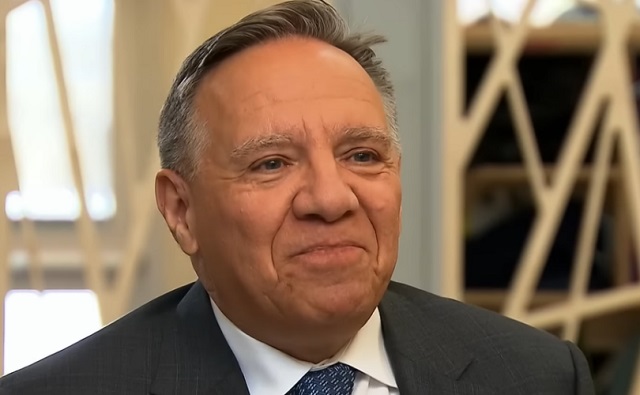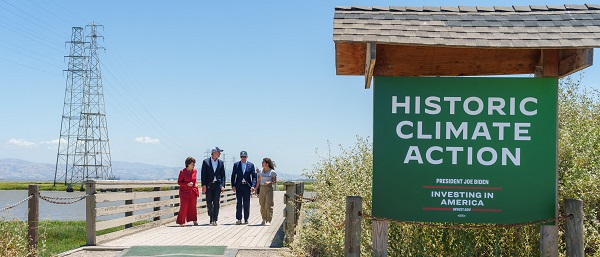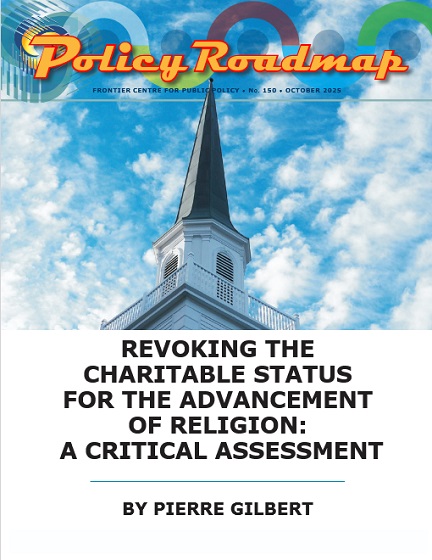Justice
Quebec’s highest court upholds law banning public servants from wearing religious symbols

Quebec Premier François Legault
From LifeSiteNews
The new ruling overrides the Quebec Superior Court’s 2021 ruling which exempted the Montreal English school board from the province’s secularism law which prohibits public servants from wearing cross or other religious symbols.
Quebec’s highest court has upheld the province’s secularism law which bans civil servants from wearing religious symbols while at work.
On February 29, the Quebec Court of Appeals ruled that that the province’s secularism law, Bill 21, is constitutional and overturned a previous decision which exempted English schools from the law.
“The Act does not offend the unwritten principles or the architecture of the Canadian Constitution, nor does it offend any pre-Confederation statute or principle having constitutional status,” Appeal Court justices, Manon Savard, Yves-Marie Morrissette et Marie-France Bich wrote in their decision.
Bill 21, passed in 2019, bans all public servants, including public school teachers, police officers, government lawyers, and wildlife officials, from wearing any religious symbols while at work.
However, citing its commitment to “diversity, acceptance, tolerance and respect for individual rights and religious freedoms,” the Montreal English School Board indicated that it would not comply with the new law.
While the Quebec Superior Court exempted English schools from the secularism law in April 2021, the new 290-page ruling overrides the lower court’s decision.
The Superior Court decision was challenged in November 2022 by various civil liberties groups in addition to the Quebec government, which argued it created an unfair distinction between English and French schools.
The new decision relies on the province’s use of the notwithstanding clause, which allows the province to override most challenges to the legislation.
The notwithstanding clause, embedded in section 33 of the Canadian Charter of Rights and Freedoms, allows provinces to temporarily override sections of the Charter of Rights and Freedoms to protect new laws from being scrapped by the courts.
“The court has confirmed Quebec’s right to make its own decisions,” Premier François Legault told reporters in Montreal Thursday. “Secularism is a collective choice that is part of our history, in continuity with the Quiet Revolution. Secularism is a principle that unites us as a nation in Quebec.”
Legault confirmed that the province will continue using notwithstanding clause for “as long as it is necessary for Canada to recognize the societal choice of the Quebec nation.”
He added that the law is “non-negotiable” as the province recently tabled legislation to renew the application of the clause to Bill 21 for another five years.
While the decision was celebrated by the Quebec premier, the Canadian Civil Liberties Association (CCLA) called the ruling a “painful setback.”
“This is a heart-wrenching day and highlights the urgent need for people across Quebec who have stood up for the values of equality, justice and freedom to continue to raise their voices,” CCLA Executive Director and General Counsel Noa Mendelsohn Aviv said in a press release.
“These values are the ones that fuel our legal challenge and that lie at the heart of our collective struggle against Bill 21,” Aviv declared.
Similarly, Quebec Life Coalition President Georges Buscemi told LifeSiteNews, “This decision is completely consistent with the recent historical trend in Quebec, which is one of rejecting its Catholic heritage in favor of a liberal ‘enlightened’ worldview, which considers religion to be a purely private matter.”
“This decision confirms the ‘legality’ of Quebec’s secularism law, which purports to make the state ‘neutral’ with respect to religions,” he continued. “Whatever the intentions of this law, its effect is to extirpate all signs of religion from the public square, from Knights of Columbus meetings in community centers to prayer in daycares. So called state-neutrality is quickly becoming state atheism in practice.”
Alberta
No Permission Required: Alberta Will Protect Its Daughters

Section 33 Is a Legitimate Democratic Instrument
Tell everyone. There is no Charter right for a biological male to compete against females in women’s sports. Nor is there a constitutional right for children to be maimed and rendered sterile in service to self-proclaimed identities. And there is certainly no excuse for a government in Ottawa to interfere with provinces’ ability to defend women and girls from the fallout of sexual fetishism dressed in federalist drags.
Yet here we are.
Albertans are being invited to ask an important question. When rights collide, should we trust the flawed judgment of elected officials who face the people every few years, or surrender that authority to similarly flawed judges selected in near secrecy, immune to removal, and uninterested in the lived realities of the citizens they affect?
Section 33 of the Charter—the “notwithstanding clause”—exists for precisely this purpose. It was never a loophole. It was a constitutional safeguard demanded by Premiers like Alberta’s Peter Lougheed and Saskatchewan’s Allan Blakeney. It was their condition for agreeing to the Trudeau Charter in 1982, a shield for legislatures to retain sovereignty in cases where Ottawa-appointed, unelected courts would push too far into political life. It was a tool to defend provincial uniqueness against Ottawa’s homogenizing power.
Blakeney explained it plainly. Where judicial rulings lead to outcomes that might cause undue harm, for example, legislatures must retain the right to legislate, even if a court believes a Charter right has been breached. It was an elegant way to deal with the inevitable tension between rights adjudicated by judges and those protected by governments chosen by the people. It was a way to guarantee democracy over legal technocracy. The hysterical NDP machine will have people believe it is also the legislation of cruelty.

Section 33 is a temporary mechanism—suitable for five years, renewable only through re-legislation. Whatever the progressives say, it does not override or erase any rights. It cannot be used in secret, and any government that invokes it must defend its choice publicly. That is democratic accountability. The people can debate it (and we now where the contemporary left stands on debating), throw the government out, or demand that the law be changed, if they so choose.
This safeguard is now essential. Alberta is acting to protect the integrity of women’s sports and spaces. Who would be against protecting their daughters? Girls have lost competitions, lost scholarships, and in some cases been physically injured competing against males who claim to be female. These are not hypotheticals. They are real, measurable harms—harms progressive politicians and the courts are at times unwilling to recognize. Alberta’s proposed protections have drawn fierce opposition from progressive ideological activists and their allies in the press and the federal parliament, who now claim that such laws are contrary to the Charter. They seek to keep imposing without open debate the fiction that there is a Charter right for a biological male to compete against females in women’s sports.
There is no such right, and it doesn’t exist in the Charter. The Charter was not drafted to validate identity fantasies. It was not written to erase biological sex or enshrine the right of middle-aged men to force immigrant women to handle their genitals. It was not intended to give minors access to irreversible surgeries without the knowledge or consent of their parents. These things are being “read into” the Charter by tribunals and activist judges trained in Laurentian law schools with no democratic mandate, often under pressure from a woke federal government happy to let the courts advance policies it wants but is afraid to pass through Parliament.
Naheed Nenshi has made it clear where he stands. He bluntly opposes the use of Section 33 to protect Alberta women and girls. His allegiance is to the same cultural current that waddles through Ottawa. He speaks the language of progress but misses the point entirely. This isn’t about political posturing. It is about protecting girls and women from being injured, marginalized, and erased to satisfy the ideological demands of his political base.
It is about affirming the constitutional prerogative of Alberta’s legislature to protect its jurisdictional sphere. This is about facing anti-scientific postures with courage and preserving truth: men aren’t women, no matter how much ideological poultry progressive voodoo priests sacrifice to affirm it.
Ottawa’s interest in neutering Section 33 is not born of a deep commitment to human rights. It is a power play. The Trudeau-era delusional policies and its Carney-extended government see in Section 33 an obstacle to the court-driven social revolution it has vigorously encouraged. It wants provinces disarmed. Not through constitutional amendment, which would require tough negotiating, broad agreement and transparency, but through attrition—by shaming any use of the clause and suggesting that invoking it is inherently illegitimate. But that federal poodle won’t hunt in Alberta.
Ottawa already has the power to disallow provincial legislation outright under Section 90 of the BNA Act, 1867. That power—known as disallowance—allows the federal cabinet to kill any provincial law within a year of its passage. It has not been used since 1943, not because it is illegal, but because it is politically toxic. If Ottawa were to disallow an Alberta or Saskatchewan law protecting girls’ sports or parental rights, the backlash would be immediate and overwhelming. Progressives prefer pushing their ideological agendas in the dark, through political smoke curtains, behind close doors.
The federal government would rather pretend it lacks power while trying to strip away the strongest tool provinces have to protect their constitutional space. Section 33 is a scalpel compared to Ottawa’s sledgehammer, but it is a scalpel that Ottawa doesn’t want the provinces to use because it limits the power of the judges they appoint.
And let us not pretend this kind of judicial overreach is limited to social policy. Just a few years ago, the Supreme Court had the opportunity to strike down Canada’s tangle of interprovincial trade barriers in the Comeau case (2018). The question was straightforward: does Section 121 of the Constitution, which says goods “shall be admitted free” between provinces, actually mean what it says?
The Court answered no. It chose legal technicalities over the clear, economic intent of the BNA Act. In doing so, it upheld a regime of trade barriers that make Canada’s internal economy more balkanized. Donald Trump’s tariffs have nothing on the now court-preserved domestic trade barriers.
While the courts did not impose the regime of inter provincial blockages, it was the last to endorse it, weakening the country. Canadians cannot freely ship beer or wine across provincial lines. Businesses face duplicated regulations and supply chains carved up by provincial restrictions. The result is a sluggish, over-regulated economy that punishes ordinary citizens while rewarding monopolies and gatekeepers.
The Comeau decision was a betrayal of Confederation. It was also a reminder of the deeper problem: judges, however skilled, are not elected. That doesn’t make them bad people, but they are not accountable. The current Chief Justice, who condemned the truckers’ protest knowing legal cases would be coming active challenging the COVID lockdowns, openly advocated for stronger federal power. He is not neutral. And even if he were, he remains unaccountable to the people of Alberta. His political judgment carries no democratic legitimacy, yet it shapes the rules under which we are expected to live.
This is why Section 33 must be preserved—and used. But whether or not it is used legitimately in Alberta, it is for Albertans to determine. Not Ottawa. The threat isn’t coming from Alberta’s legislature—it’s coming from courts and bureaucrats choosing to advance male fetish desire as sacred while erasing female safety.
Premier Danielle Smith understands this. So does Premier Scott Moe. That is not judicial defiance. That is democratic responsibility. When Ottawa and the NDP opposition in both provinces seek to override parental rights, deny biology, and impose ideology on children, women, and families, it is the perfect time for legislatures to act. And if not legislatures, then who?
Albertans should not have to ask permission from Ottawa to protect their daughters. They should not have to wait years for a judge’s approval to define women’s places and spaces. They should not be ruled by edicts from individuals who have never faced a voter in their lives.
Section 33 is a lawful democratic instrument. It exists to ensure that provinces do not lose control over essential provincial matters. Alberta is using it for precisely the reason it was designed—to uphold the will of its people in the face of potential judicial activism that favours anti-scientific ideology above reality.
No permission is required. Alberta will protect its daughters.
Haultain Research is a reader-supported publication.
To receive new posts and support our work, consider becoming a free or paid subscriber.
Fraser Institute
B.C. Aboriginal agreements empower soft tyranny of legal incoherence

From the Fraser Institute
By Bruce Pardy
In April 2024, the British Columbia government agreed to recognize and affirm the Haida Nation’s Aboriginal title to the archipelago on Canada’s west coast. In December, Ottawa did likewise. These agreements signal danger, and not just on Haida Gwaii.
The agreements tell two conflicting stories. One story is that a new era has begun. Colonial occupation has ended. Haida Gwaii will be governed in accordance with Haida Aboriginal title. But the second story is that private property will be honoured, federal, provincial and local governments will continue to exercise their jurisdiction, and the province will continue to provide and pay for health, education, transportation and fire and emergency services.
On Haida Gwaii, everything has changed, but nothing will change. Though both stories cannot be true, it’s impossible to tell which is false in what respects. Who has jurisdiction over what? If you use your land in a way that complies with local government zoning but the Council of the Haida Nation prohibits it, is it prohibited or permitted? If the council requires visitors to be vaccinated, but the province does not, must they be vaccinated or not? The agreements don’t say.
When jurisdictional conflicts arise under the agreements, they are to be “reconciled” in a transition process. But that process will be decided under Haida law, which is not codified or legislated. Only those with status and authority can say what it is. The legal meaning of the Haida Gwaii agreements therefore cannot be ascertained in any objective sense.
The agreements say private property on Haida Gwaii will be honoured. But private property is incompatible with Aboriginal title. According to the Supreme Court of Canada, Aboriginal title is communal: it consists of the right of a group to exclusive use and occupation of land, but with inherent limits on that use. Land subject to Aboriginal title “cannot be alienated except to the Crown or encumbered in ways that would prevent future generations of the group from using and enjoying it,” the Court wrote in 2014. “Nor can the land be developed or misused in a way that would substantially deprive future generations of the benefit of the land.” If so, the promises in the agreement conflict. Land subject to Aboriginal title cannot be given away or sold, either as a single piece or in bits, except to the Crown. But when land is surrendered to the Crown, Aboriginal title is extinguished on that land. If Haida Gwaii really is subject to Aboriginal title, then no one can own parts of it privately.
Around 5,000 people live on Haida Gwaii, about half Haida. In April 2024, they voted 95 per cent in favour of the B.C. agreement at a special assembly in which non-Haida residents had no say. The agreements create two classes of citizens—one with political status, the other without, depending on people’s lineage.
According to B.C. Premier David Eby, the Haida Gwaii agreement is a template for the rest of the province. In early 2024, the government proposed to amend the province’s Land Act to empower hundreds of First Nations to make joint decisions with the minister on how Crown land—around 95 per cent of the province—is used. That would have given First Nations a veto over the use of public land. Public backlash forced the government to withdraw its proposal, which it did in February 2024. But it has not backed off its objectives and instead has embarked on a series of agreements granting title to, or control over, specific territories to specific Aboriginal groups. Typically, these are negotiated quietly and announced after the fact.
For example, in late January, the government revealed it had made an agreement with the shíshálh (Sechelt) Nation on B.C.’s Sunshine Coast granting management powers, providing for the acquisition of private lands, and making a commitment to recognize Aboriginal title. That agreement was made in August 2024 on the eve of the provincial election but kept hidden for five months. The government eventually posted a copy of it on its website—though with portions redacted. According to an area residents’ association, they were not consulted and weren’t even advised negotiations were taking place.
In the courts, the story is unfolding in a similar way. A judge of the B.C. Supreme Court recently found that the Cowichan First Nation holds Aboriginal title over 800 acres of government land in Richmond, B.C. But that’s not all. Wherever Aboriginal title is found to exist, said the court, it is a “prior and senior right” to fee simple title, whether public or private. That means it trumps the property people have in their house, farm or factory.
If the Cowichan decision holds up on appeal, private property will not be secure anywhere a claim for Aboriginal title is made out. In November, a New Brunswick judge suggested that where such a claim succeeds, the court may instruct the government to expropriate the private property and hand it over to the Aboriginal group.
The Haida Gwaii agreements empower the soft tyranny of legal incoherence. The danger signs are flashing. More of the same is on the way.
-

 Daily Caller1 day ago
Daily Caller1 day agoUtah Republican Senator Planning To Attend Big Globalist Climate Shindig Despite Trump’s Energy Policies
-

 Business2 days ago
Business2 days agoUN, Gates Foundation push for digital ID across 50 nations by 2028
-

 International11 hours ago
International11 hours agoNumber of young people identifying as ‘transgender’ declines sharply: report
-

 Energy13 hours ago
Energy13 hours agoIndigenous Communities Support Pipelines, Why No One Talks About That
-

 C2C Journal2 days ago
C2C Journal2 days agoCharlie Kirk and the Fragility of Civic Peace
-

 Business2 days ago
Business2 days agoNetherlands Seizes Chinese-Owned Chipmaker in Unprecedented Security Move
-

 Business13 hours ago
Business13 hours agoFinance Committee Recommendation To Revoke Charitable Status For Religion Short Sighted And Destructive
-

 Brownstone Institute2 days ago
Brownstone Institute2 days agoTrump Covets the Nobel Peace Prize




